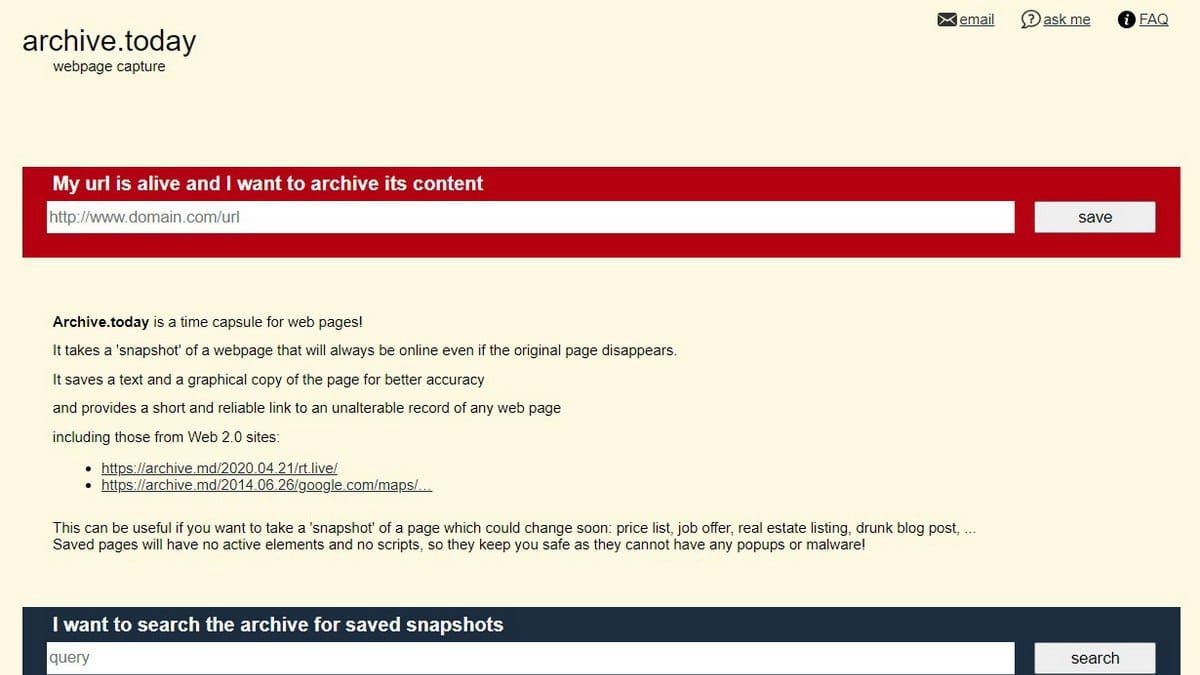FBI Demands Identity of Archive.Today Operator in Criminal Investigation

The FBI wants to know who runs archive.today, one of the internet's largest and most controversial web archiving services. On October 30, 2024, federal agents sent a legal demand to domain registrar Tucows requiring disclosure of the site operator's identity and personal information.
The request, first reported by 404 Media, connects to an ongoing federal criminal investigation. Archive.today representatives published the court document on X (formerly Twitter), revealing the scope of data the FBI seeks.
What the FBI Wants
The federal subpoena doesn't specify the alleged violations driving this investigation. However, it demands an extensive range of data from the domain registrar, including:
- Telephone connection records (incoming and outgoing calls, SMS/MMS messages)
- Payment information (credit card and account numbers)
- Internet session data (connection times and duration)
- Device identifiers (IMEI, IMSI, UFMI, ESN numbers)
- Network addresses (IP addresses and other temporary identifiers)
- Service usage details (cloud services, gaming, messaging, and other platform activity)
Tucows confirmed to journalists that it typically complies with government requests but declined to comment on this specific case.
Archive.Today's History and Purpose
Archive.today launched over a decade ago and operates through multiple mirror domains including archive.is and archive.ph. The service gained significant popularity during the 2014 GamerGate controversy, when online activists used it to preserve publications without directing traffic to original websites and to track article changes.
Since then, the platform has become a major web archiving tool. Users save news articles, blog posts, government documents, and pages that might disappear or change over time. The service now hosts hundreds of millions of archived pages.
The Mystery Operator
Almost nothing is known about who runs archive.today. Investigative attempts to identify the operator have produced only speculation. One investigation suggested a single individual, likely based in Russia with technical expertise and European connections, manages the entire operation.
The service itself claims private funding and minimal infrastructure. In 2021, administrators wrote that the project "could die at any moment." Despite this claim, the platform continues operating and growing.
Permanent Archives Create Legal Questions
Archive.today's operational approach makes content removal nearly impossible. The site's creators explained back in 2013 that they actively fight against "dead links"—meaning once content is archived, it stays archived.
This permanence creates both value and legal complications. Journalists, researchers, and activists rely on the service to preserve evidence and track how online content changes. However, the inability to remove archived content has generated complaints from individuals and organizations who want material deleted.
What Happens Next
The FBI investigation puts archive.today in an unusual position. The service's anonymous operator and distributed mirror structure make enforcement actions difficult. Tucows can provide whatever data it has about the domain registration, but whether that leads to identifying the actual operator remains unclear.
For users who depend on archive.today for research, journalism, or documentation, this FBI interest raises questions about the service's future. The platform has operated in a legal gray area for years, serving legitimate archival purposes while also enabling paywall circumvention and preserving content some parties want removed.
Bottom Line
The FBI's interest in archive.today signals potential legal scrutiny for web archiving services that operate outside traditional frameworks. Whether this investigation targets specific criminal activity or challenges the broader model of permanent, anonymous web archiving remains unknown. What is clear: one of the internet's most-used archival tools now faces federal examination, and its anonymous operator may soon lose that anonymity.